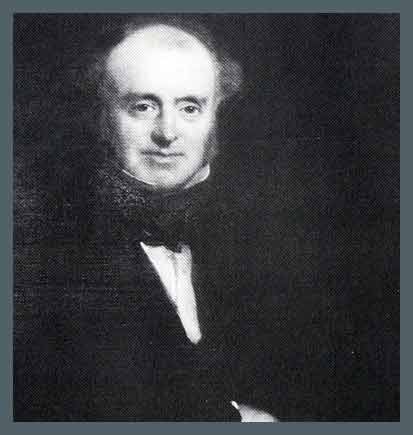British Canals Through The Years: Navigation 

James Walker - Canal Engineer
James Walker (1781-1862) was a prominent British civil engineer who worked extensively in the field of canal engineering during the 19th century. He is best known for his work on a number of important canal projects, including the Forth and Clyde Canal in Scotland and the canals: Manchester Ship Canal and Daw End Canal in England.
Walker was born in Falkirk, Scotland, in 1781, and was the son of a stonemason. He began his career in the early 1800's working for the engineer John Rennie on the construction of the Lancaster Canal. He went on to work for Rennie's son, also named John and eventually became a partner in the firm of Rennie, Walker and Burges.
One of Walker's most significant projects was the Forth and Clyde Canal, which was built to connect the east and west coasts of Scotland. The canal was constructed between 1768 and 1790, but by the early 19th century it had fallen into disrepair. Walker was brought in to oversee a major renovation of the canal, which involved deepening and widening the waterway to accommodate larger boats. The work was completed in 1830 and the canal played an important role in the transportation of goods in Scotland for many years.
Another major project that Walker worked on was the Manchester Ship Canal, which was constructed between 1887 and 1894 to provide a direct waterway between Manchester and the Irish Sea. The canal was the largest engineering project of its time, and involved the construction of a massive system of locks, aqueducts and bridges. Walker was responsible for the design and construction of many of these structures, and his work helped to make the canal a major commercial success.
Walker was also involved in the construction of a number of other canals throughout the UK, including the Glasgow, Paisley and Johnstone Canal and the Monkland Canal. He was a Fellow of the Royal Society of Edinburgh and was awarded the Telford Medal by the Institution of Civil Engineers for his contributions to the field of civil engineering.
Overall, James Walker was a highly skilled and innovative canal engineer who played a significant role in the development of Britain's canal network during the 19th century. His work on projects such as the Forth and Clyde Canal and the Manchester Ship Canal helped to shape the landscape of the UK and revolutionise the transportation of goods by water.
The Canal and Navigable Waterway Engineers 
These engineers played a significant role in the development of the canal system in Britain during the Industrial Revolution. Their innovations helped to transform transportation and infrastructure in the country.

